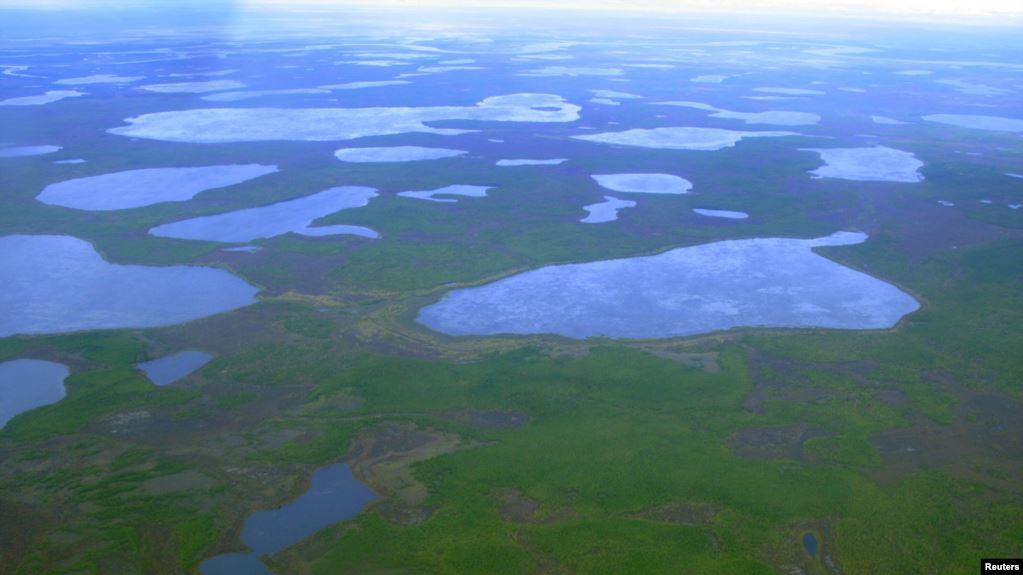

Study Suggests Melting in Arctic Could Release Heat-trapping Gases
 Advanced
Advanced
2020/07/29 14:30
1.carbon (n)
a chemical element that exists in its pure form as diamond or graphite, and is an important part of other substances such as coal and oil, as well as being contained in all plants and animals
2.microorganisms (n)
a living thing that on its own is too small to be seen without a microscope
3. remained (v)
to stay in the same place or in the same condition
4.store (v)
to put or keep things in a special place for use in the future
5. atmosphere (n)
the mixture of gases around the earth
6. exposed (adj.)
not covered; able to be seen
Study Suggests Melting in Arctic Could Release Heat-trapping Gases

A new study suggests that increased warming in Arctic areas could release huge amounts of carbon into the atmosphere.
The study centered on the permafrost layer beneath Arctic soil. The researchers said melting of this layer could release billions of tons of carbon into the atmosphere, with big effects on worldwide temperatures.
Permafrost is a layer of soil in the world’s Arctic and Antarctic areas. It has, in some cases, remained frozen for many years. Permafrost is important to the world’s climate because it is believed to store two times the amount of carbon as there is in the atmosphere.
Researchers examined how the top layer of this frozen soil warms during the summer. That is when plants and microorganisms come to life. The microorganisms eat plant roots and “breathe” like all living organisms, releasing carbon dioxide which is considered a heat-trapping, greenhouse gas. Scientists call this process rhizosphere priming.
The researchers say as more frozen soil warms up, more plant roots are becoming exposed to microorganisms. As a result more carbon dioxide is being released. The researchers estimated the process could add as much as 40 billion tons of carbon to the atmosphere by the year 2100.
Resource:https://learningenglish.voanews.com/a/study-suggests-melting-in-arctic-could-release-heat-trapping-gase

- How do heat trapping gases affect our atmosphere?
- What is the most common heat trapping gas?
- What causes the heat trapping gases?
"The greenhouse effect is probably the best known of those factors influencing climate, but up to now any role played by tidal mixing of the surface ocean has not been included in future scenarios. The greenhouse effect may be the larger of these two effects, but it is important to know how much of future warming might be natural or manmade."
Timothy Whorf


